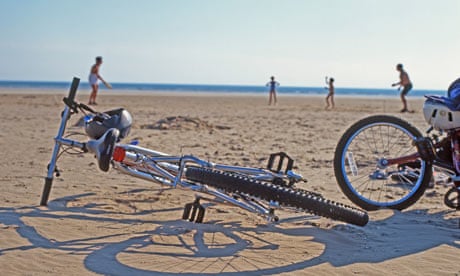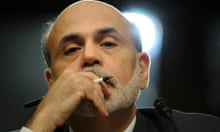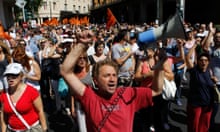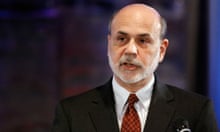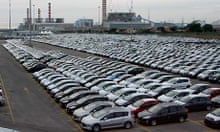Rafael Quereda, 58, opened his bike shop in the heart of Madrid 18 months ago, when he lost his job at a graphic design company after 25 years. "After I was sacked I was trying to find something to do and because I'm old, there wasn't much work about. But I saw that people had really started to use bicycles and that there was a market."
Quereda is not the only one enjoying Spain's bike boom. For the first time, bicycles appear to be outselling cars. Across Spain, the latest cycle industry figures show 780,000 people opting for two wheels, making up about 4% of Europe's total, while 700,000 cars were sold.
For many it is yet another indicator of the ongoing recession that has hit Spain, leaving it with more than 25% of its workforce unemployed, rising to 56% among young people. It is a shocking turnaround for a country whose economy was once hailed as one of Europe's great success stories. In the five years up to 2007, Spain created almost half the new jobs in the entire eurozone. It is a very different story now.
Amid the rising cost of car use and public transport, "we're getting more customers each day", said Quereda.
"All types of people come in, young and old, some want a new bike, some bring in the bicycles they've had stored in the garage for 30 years to be repaired." A few of the bicycles brought into his shop next to Retiro Park resemble medieval contraptions, adds Quereda, "but that's not a problem".
Across town at the Seat car showroom on the Paseo de la Castellana, one of Madrid's busiest avenues, it is a different story. Its shiny, glass-walled showroom is full of polished new and secondhand cars, but there's little business being done. A sleepy silence prevails, with more staff than customers.
"We need to be selling a million cars a year in Spain," said Federico Suárez Leco, commercial director of Castellana Motor, meaning the country is 30% below its target. "In 2007, we sold 390 individual cars [excluding company cars] a year, but in 2012 it was down to around 300." And this is one of Seat's biggest showrooms in Madrid. The story is much worse across the capital and the country, said Suárez. "Lots of showrooms are closing all the time."
Suárez says that during the boom years Spaniards lived "beyond their means … buying cars they couldn't afford, with finance plans they should never have got involved with".
The fall to earth has thus been even more painful than it might have been, "and even though they talk about there being light at the end of the tunnel, I don't see it."
He pointed out that the most popular brand in Spain last month was the Dacia, a Romanian-made vehicle launched in 1966, and now a subsidiary of Renault, which is aimed right at the budget end of the market.
Its strong sales, said Suarez, "show how bad the economy is".
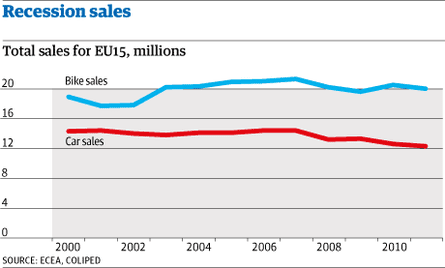
The government has brought in numerous policies to encourage sales over the years, including a scrappage scheme for cars older than 12 years, without which the situation would be even more dire. Given the importance of car manufacturingto the domestic economy, more needs to be done, said Mario Armero, vice-president of Anfac, the National Association of Car Manufacturers.
"We have to be more forward in areas such as logistics, taxation, research and development," said Armero.
"Spain and its car industry are moving steadily towards exiting the crisis. In recent years we have been allocated 20 new models and by 2014 will produce about 45 models. This recognition of the quality of manufacturing in Spain is reflected in the fact that Spain exported taxis to New York , to London or Abu Dhabi," he argued. But there will be plenty more pain yet.
One of the attractions of the bicycle is, of course, the value for money, but there's more to it than that. Cycling has definitely become cool. In the Bicicleta cafe in Malasaña, Madrid's hippest district, they mix coffee and an obsession with cycling.
Tamy Marques, 30, opened the cafe with her partner last December, having picked up on the fashion for cycle cafes in London, where art, discussion groups, workshops come together with only the very best cafes con leche. She agrees that Madrid is not as cycle-friendly as some other cities, but believes it is changing.
"You can't just create a cycle path, you also have to teach people how to use them," she said, as customers buzz in and out. "There's a bike for everyone … foldaways, electric ones, fixed gear, urban bikes … whatever works with your lifestyle." And, of course, they are environmentally sound: "When I cycle behind a car, I take in all their pollution, but the person behind me gets nothing bad at all."
And there are those who have always cycled in Madrid. One of Spain's most famous names, singer-songwriter Christina Rosenvinge, says she has been cycling for more than 10 years in the capital. "Originally there weren't many of us but in the last few years, I've noticed a real change.
"Back then, if you went out with a child on the back of your bike, drivers used to lean out of their window and shout 'Murderer!," she said, "but people are now more tolerant."
There still are not many good cycle paths, but small activist groups are pressuring town halls across the country. It seems they are finally being heard.
